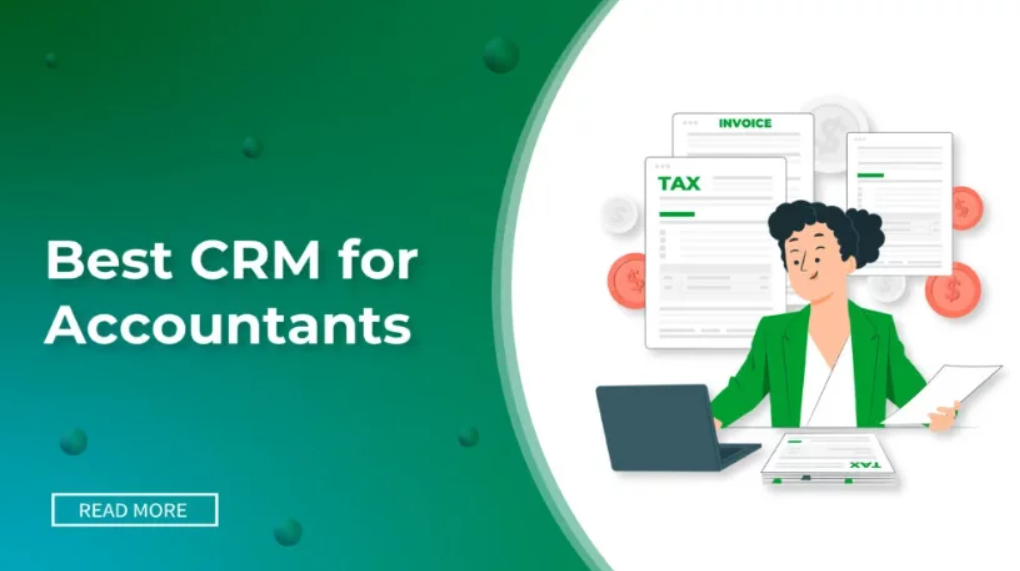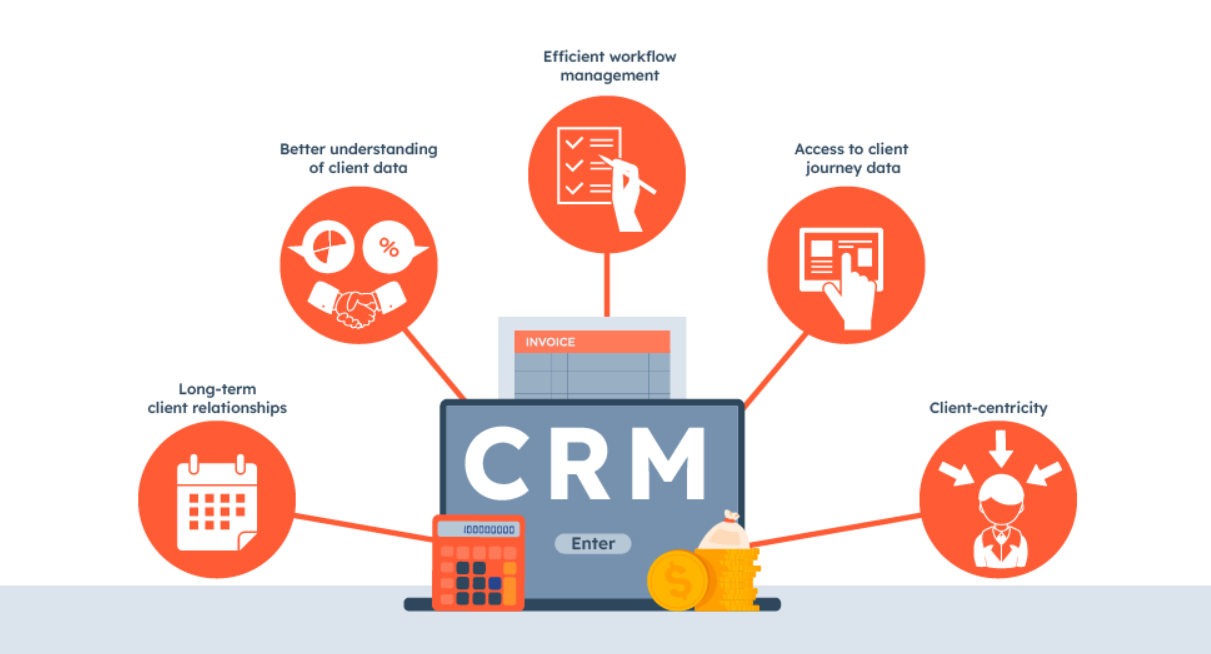In today’s competitive business landscape, accounting firms are increasingly recognizing the importance of Customer Relationship Management (CRM) systems to streamline their operations, enhance client relationships, and drive growth. A well-implemented CRM can significantly improve an accounting firm’s efficiency, client retention, and overall profitability. This article explores the six best CRM systems tailored for accounting firms, delving into their features, benefits, and potential drawbacks.
Understanding the Need for CRM in Accounting Firms
Before diving into specific CRM solutions, it’s crucial to understand why accounting firms need specialized CRM systems. Unlike generic CRM platforms, CRM systems designed for accounting firms offer industry-specific features that cater to the unique needs of financial professionals. These needs include:
- Client data management: Storing and organizing detailed financial information for each client.
- Compliance tracking: Ensuring adherence to industry regulations and deadlines.
- Document management: Securely storing and sharing sensitive financial documents.
- Time and billing integration: Tracking billable hours and generating invoices.
- Workflow automation: Streamlining repetitive tasks and processes.
- Reporting and analytics: Providing insights into firm performance and client profitability.
By addressing these specific needs, a well-chosen CRM system can help accounting firms improve their operational efficiency, enhance client relationships, and ultimately drive business growth.
Key Features to Look for in Accounting CRM Systems
When evaluating CRM systems for accounting firms, several key features stand out as particularly beneficial:
- Integration capabilities: Seamless integration with accounting software, tax preparation tools, and other financial applications.
- Client portal: A secure platform for clients to access their financial information and collaborate with their accountants.
- Task management and workflow automation: Tools to streamline processes and ensure timely completion of tasks.
- Customizable dashboards: Ability to create personalized views of key performance indicators and client information.
- Robust security measures: Advanced data protection features to safeguard sensitive financial information.
- Mobile accessibility: Access to client information and CRM features on-the-go.
- Scalability: Ability to grow with the firm and accommodate increasing data and user needs.
With these criteria in mind, let’s explore the six best CRM systems for accounting firms.

1. Salesforce Financial Services Cloud
Salesforce, a leader in the CRM space, offers a specialized solution for financial services with its Financial Services Cloud. While not exclusively designed for accounting firms, it provides robust features that can be tailored to meet the needs of financial professionals.
Key Features:
- Comprehensive client profiles with financial account information
- Integration with Einstein AI for predictive analytics and insights
- Customizable workflows and automation tools
- Extensive third-party integration options
- Advanced security and compliance features
Benefits for Accounting Firms:
Salesforce Financial Services Cloud excels in providing a 360-degree view of clients, which is crucial for accounting firms managing complex financial relationships. Its powerful automation capabilities can significantly streamline repetitive tasks, allowing accountants to focus on higher-value activities. The platform’s AI-driven insights can help identify cross-selling opportunities and predict client needs.
Potential Drawbacks:
While highly customizable, Salesforce can be complex to implement and may require significant investment in terms of time and resources. Smaller accounting firms might find it overwhelming and potentially over-featured for their needs.
2. Microsoft Dynamics 365
Microsoft Dynamics 365 offers a suite of business applications that can be tailored for accounting firms. Its integration with other Microsoft products makes it an attractive option for firms already using Microsoft tools.
Key Features:
- Seamless integration with Microsoft Office suite
- Customizable dashboards and reports
- Robust workflow automation capabilities
- built-in AI and analytics tools
- Client portal functionality
Benefits for Accounting Firms:
Microsoft Dynamics 365’s strength lies in its integration with familiar Microsoft tools, potentially easing adoption for firms already using these products. Its customization capabilities allow firms to tailor the system to their specific workflows. The platform’s built-in AI can provide valuable insights into client behavior and firm performance.
Potential Drawbacks:
Like Salesforce, Microsoft Dynamics 365 can be complex to implement and may require ongoing IT support. Its pricing structure can also be confusing, potentially leading to unexpected costs as firms scale.
3. Sage CRM
Sage, a company well-known in the accounting software space, offers a CRM solution that integrates seamlessly with its accounting products. This makes it an excellent choice for firms already using Sage accounting software.
Key Features:
- Deep integration with Sage accounting software
- Client management and opportunity tracking
- Document management and collaboration tools
- Mobile access for on-the-go client management
- Customizable dashboards and reports
Benefits for Accounting Firms:
Sage CRM’s primary advantage is its tight integration with Sage accounting products, providing a unified platform for financial and client management. This integration can significantly reduce data entry and improve data accuracy. The platform also offers robust document management features, which are crucial for accounting firms dealing with numerous financial documents.
Potential Drawbacks:
While excellent for firms using Sage accounting software, those using other accounting platforms may find the integration benefits limited. The user interface, while functional, may not be as modern or intuitive as some competitors.
4. Practice Engine
Practice Engine is a practice management system with strong CRM capabilities, designed specifically for accounting and professional services firms.
Key Features:
- Integrated time and billing functionality
- Workflow management and task automation
- Client portal for secure document sharing
- Comprehensive reporting and analytics
- Industry-specific features for accounting firms
Benefits for Accounting Firms:
Practice Engine stands out for its focus on the specific needs of accounting firms. Its integrated time and billing features are particularly valuable, allowing firms to seamlessly track billable hours and generate invoices. The workflow management tools can help standardize processes across the firm, improving efficiency and consistency.
Potential Drawbacks:
As a specialized solution, Practice Engine may not offer the same level of customization or third-party integrations as more general CRM platforms. Its focus on accounting firms may also limit its usefulness for firms offering a broader range of financial services.
5. Insightly
Insightly is a general-purpose CRM that offers features well-suited to accounting firms, particularly those looking for a more affordable and user-friendly option.
Key Features:
- User-friendly interface with low learning curve
- Project management capabilities
- Email integration and tracking
- Custom fields and data pipelines
- Mobile apps for iOS and Android
Benefits for Accounting Firms:
Insightly’s strength lies in its ease of use and affordability, making it an attractive option for smaller accounting firms or those new to CRM systems. Its project management features can be particularly useful for firms managing complex, long-term engagements. The platform’s email integration allows for efficient communication tracking and management.
Potential Drawbacks:
While user-friendly, Insightly may lack some of the advanced features and accounting-specific functionality offered by more specialized platforms. Larger firms or those with complex needs may find it limiting as they scale.
6. Atera
Atera is a unique entry in this list, as it combines Professional Services Automation (PSA), Remote Monitoring and Management (RMM), and CRM functionalities. While primarily designed for IT service providers, its features make it a compelling option for modern accounting firms, especially those offering technology-related services.
Key Features:
- Integrated ticketing system for client support
- Remote monitoring and management tools
- Time tracking and billing integration
- Client portal for service requests and communication
- Comprehensive reporting and business intelligence
Benefits for Accounting Firms:
Atera’s combination of PSA and CRM features can be particularly beneficial for accounting firms that offer technology consulting or management services alongside traditional accounting. The integrated ticketing system can help firms manage client queries and support requests efficiently. Its remote monitoring tools could be adapted to track client financial systems or software, providing proactive service.
Potential Drawbacks:
Atera’s focus on IT services means that some features may not be directly applicable to traditional accounting work. Firms focused solely on core accounting services may find some of the IT-centric features unnecessary.
Choosing the Right CRM for Your Accounting Firm
Selecting the best CRM system for your accounting firm depends on various factors, including:
- The size of your firm and its growth projections
- Your specific service offerings and client base
- Integration requirements with existing accounting and tax software
- Budget constraints and ROI expectations
- The technical proficiency of your team
It’s essential to thoroughly evaluate each option, taking advantage of free trials or demos when available. Consider involving key stakeholders in the decision-making process to ensure the chosen system meets the needs of all departments.
When implementing a new CRM system, keep in mind the following best practices:
- Clearly define your objectives and required features before beginning the selection process.
- Ensure proper data migration from existing systems to maintain data integrity.
- Invest in comprehensive training for all users to maximize adoption and utilization.
- Regularly review and optimize your CRM processes to ensure ongoing value.
In conclusion, the right CRM system can significantly enhance an accounting firm’s ability to manage client relationships, streamline operations, and drive growth. By carefully considering the options presented in this article and aligning them with your firm’s specific needs, you can select a CRM system that will serve as a powerful tool for your accounting practice. Remember that the best CRM is one that not only meets your current needs but can also scale and adapt as your firm evolves in the ever-changing landscape of financial services.

